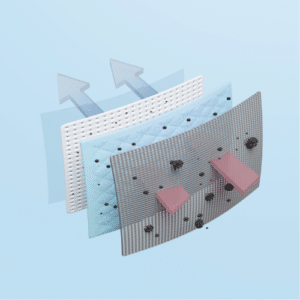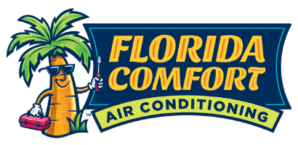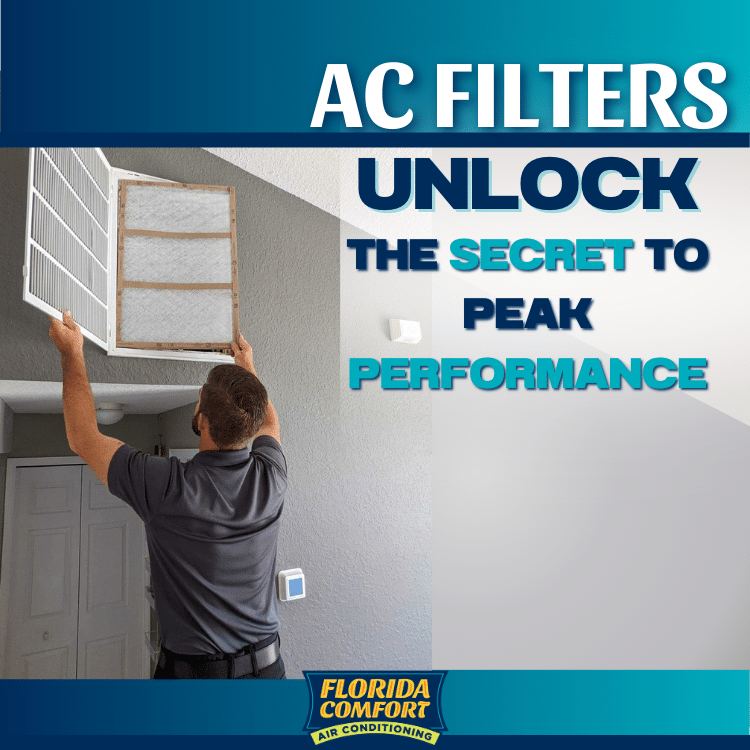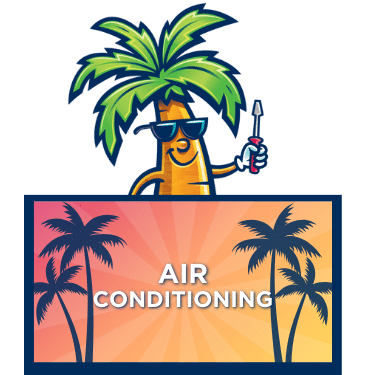AC Filters
Keeping your AC filters clean is essential for prolonging your equipment’s lifespan and maintaining top-notch performance. In this guide, we’ll cover everything you need to know about filters. First, we’ll explain how AC filters work with your system. Next, we’ll discuss the best filters for your AC and finally, we’ll explore the different types available. Let’s dive in and learn all about AC filters!
AC Air Filter: Your Home's First Line of Defense Against Pathogens and Dust
When your thermostat is powered on, it is allowing the blower motor within your air handler to intake air into the system. Once the air enters the air handler it pushes through your ac system, depending on the location of your ac filter. Every air filter operates in a comparable manner: Air flows through the filter screen. As it does so, the filter material captures various particles like pollen, dust, pet dander, dirt, and allergens. Certain types of air filters can even eliminate bacteria and viruses from the air.

How a Clogged AC Filter Can Impact Your Entire AC System
When your AC filters get clogged, it’s not just a small problem. It can have a ripple effect on your entire AC system. This can lead to various issues. For example, higher electric bills may occur, as well as insufficient airflow to different rooms in your home. Additionally, you may experience longer cooling cycles and even a frozen evaporator coil, leaving you with no AC at all. Clogged filters can also cause electrical problems and put strain on the compressor due to refrigerant slugging. They can create moisture around AC vents and result in condensation on your air handler. With debris passing through a dirty filter, even the coil can become dirty, further complicating matters. It’s essential to address clogged filters promptly to prevent these cascading issues and keep your AC system running smoothly.
What's The Best AC Filter to buy?
Electrostatic air filters offer numerous benefits that contribute to a healthier indoor environment. First and foremost, they enhance indoor air quality by effectively removing tiny particles such as dust, pollen, pet dander, and shed skin cells. This reduction in airborne pollutants addresses one of the primary causes of indoor air quality issues. Additionally, these filters improve HVAC efficiency by preventing dust and debris buildup within the system, thus reducing strain and potential problems. Moreover, electrostatic filters are highly cost-effective as they are washable and reusable, eliminating the need for frequent replacements and reducing the necessity for regular air duct cleaning. Furthermore, their easy maintenance sets them apart from HEPA filters, sparing users the hassle of frequent replacements. Environmentally conscious consumers will appreciate that electrostatic filters are reusable, minimizing waste and reducing the carbon footprint associated with filter replacements. Furthermore, they boast low initial resistance, leading to energy savings over time. Another notable advantage is their ozone generation, which emits an electrical charge capable of eliminating particulates, microbes, and mold spores. Lastly, electrostatic filters excel in removing oil droplets from cooking, further enhancing indoor air quality and overall comfort.
The Influence of MERV Ratings on Airborne Debris Emitted by Your AC System
Various types of AC filters are available to suit different preferences and needs. Options include pleated throwaway filters, non-pleated disposable filters, and washable filters. When choosing a filter, one essential factor to consider is the MERV rating, which indicates the filter’s efficiency in removing particles from the air. The MERV rating ranges from 1 to 20, with higher ratings signifying better particle-trapping capabilities. Essentially, the MERV rating reflects the smallest particle size that the filter can capture, measured in microns. Opting for a filter with a higher MERV rating can enhance air quality by capturing finer particles, but it’s essential to balance this with factors such as airflow and system compatibility.
The size of your AC filter can significantly affect your indoor air quality
The thickness of your air filter matters a lot. Thicker filters have many benefits:
- Last Longer: With more space to catch air particles, they don’t need replacing as often. A one-inch filter may need changing every month, while a four-inch one can last up to six months.
- Work Better: Thicker filters let air flow more freely, helping your system run smoother and more efficiently.
- Catch More Dirt: Because they have more room, they can pick up more dirt, making your air cleaner.
- Protect Your Furnace: Thicker filters prevent damage to your furnace by providing more surface area for air to move through. But keep in mind, they can be pricier and might need adjustments to your duct system. Also, not all HVAC systems can handle thicker filters. Using a filter just because it has a high MERV rating isn’t always the best idea. If it’s too thick, it could get dirty quickly, making your AC unit work too hard and potentially breaking down





